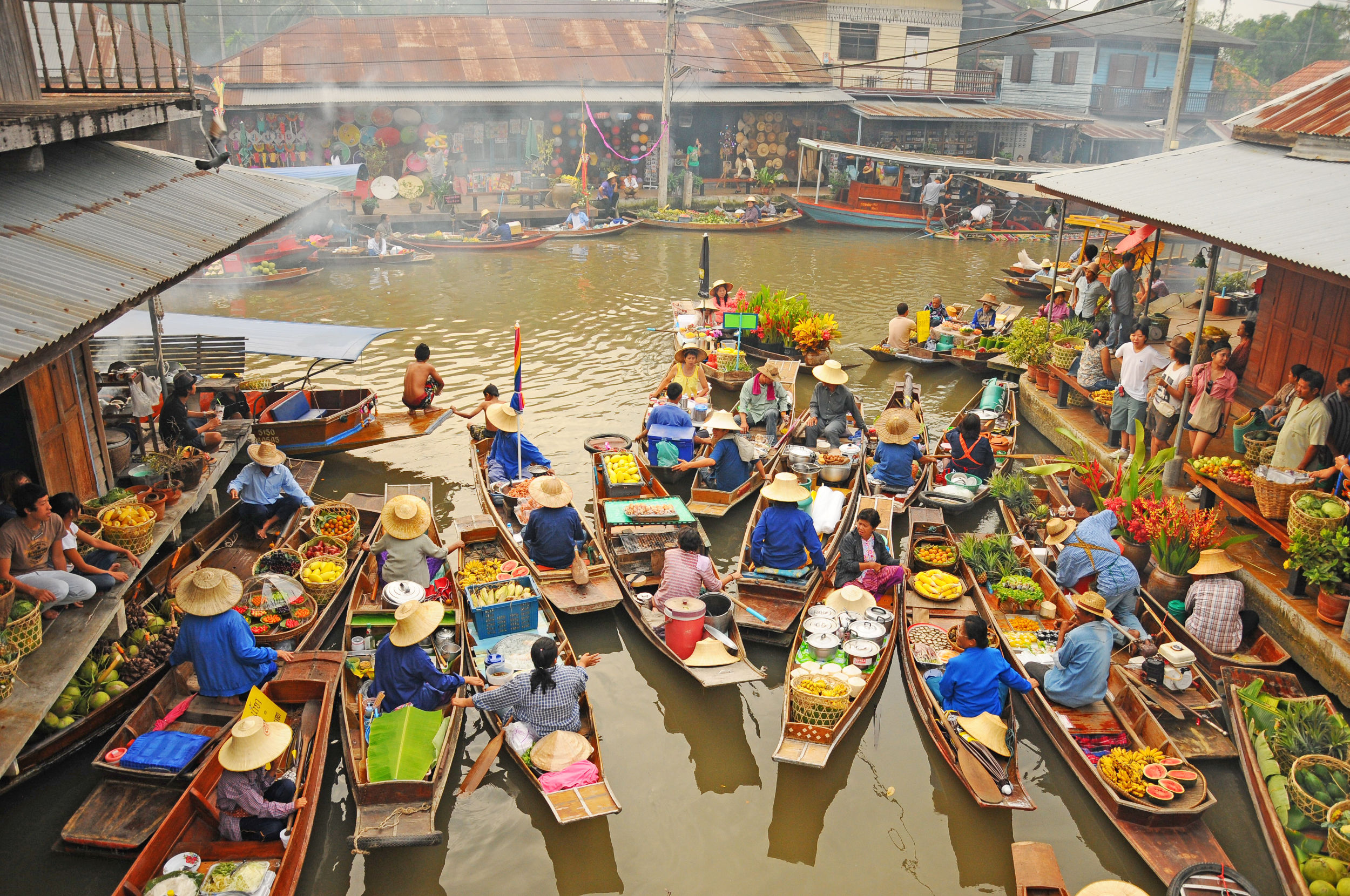
Acknowledgements
The compendium organizers sincerely acknowledge the contributions, inputs We sincerely acknowledge the contributions, inputs and insights from several individuals, without whom this compendium would not have been possible. Our gratitude commences with the continued engagement of the seven awardees of this Research Ideas Competition [listed in alphabetical order: Bianca Carducci, Chuma Banji Chinzila, David Smith, Jenny Melo-Velasco, Kanchana Wickramasinghe, Ranaivo Andriarilala Rasolofoson, and Tebogo Thandie Leepile]. Commentaries from key experts in the field of food systems change and peer-reviewers, Leith Dunn and Donald Cole, are greatly appreciated – adding immense value to the overall intent and aspiration of the initiative. We are also very thankful to the thirty-three peer reviewers who dedicated their time to critically appraise all applications received. This compendium is a product of the learnings and outcomes of the IDRC Research Ideas Competition, managed by the University of Toronto’s Dalla Lana School of Public Health. This work was carried out with the aid of a grant from the International Development Research Centre, Ottawa, Canada. The views expressed herein do not necessarily represent those of IDRC or its Board of Governors.
How to cite this document
Sauveplane-Stirling V, Di Ruggiero E, Hallen G, Leung Z, Sellen D, editors (2022). Pursuing the co-benefits for Health and Environments through food system change: a compendium of research ideas from early career researchers [Internet]. 1st ed. [eBook]. Toronto (CA): University of Toronto; 2022.
Editorial Team

Greg Hallen
International Development Research Centre

Zee Leung
formerly with International Development Research Centre

Erica Di Ruggiero
Centre for Global Health, Dalla Lana School of Public Health, University of Toronto

Daniel Sellen
University of Toronto

Victoria Sauveplane-Stirling
University of Toronto
And support from Talia Glickman and Stephanie Zhang – University of Toronto.
Acryonyms
| CARICOM | Caribbean Community – grouping of 20 countries |
| CIAT | International Center for Tropical Agriculture |
| CoP | Community of Practice |
| DBM | Double Burden of Malnutrition |
| DEAT | Department of Environmental Affairs and Tourism |
| EcoHealth | Ecosystems and Human Health (past IDRC program) |
| ECOSOC | United Nations Economic and Social Council |
| EIGE | European Institute for Gender Equality |
| FAN | Food and Nutrition/Food for Change Project |
| FAO | Food and Agricultural Organisation of the United Nations |
| FAQs | Frequently Asked Questions |
| GCRF-AFRICAP | Global Challenges Research Fund-Agricultural and Food systems Resilience: Increasing Capacity & Advising Policy |
| GHG | Greenhouse Gases |
| HLPE | High Level Panel of Experts |
| HLPEFSN | High-Level Panel of Experts on Food Security and Nutrition |
| IDP | Integrated Development Plan |
| IDRC | International Development Research Centre |
| IPES-Food | International Panel of Experts on Sustainable Food Systems |
| LMICs | Low- and Middle-Incomes Countries |
| ML | Machine Learning |
| NCDs | Non-Communicable Diseases |
| NRC | National Research Council |
| OECD | Organization for Economic Co-operation and Development |
| RRI | Rights and Resources Initiative |
| SDG | Sustainable Development Goals |
| TAG | Technical Advisory Group |
| UKZN-SHEFS | University of KwaZulu-Natal Sustainable Healthy Environment Food System project |
| U of T | University of Toronto |
1. Introduction
Over the past five decades, global food systems and human dietary patterns have changed substantially. Transitions to unhealthy and unsustainable diets are not only increasing the burden of obesity and diet-related non-communicable diseases (NCDs) such as diabetes and certain cancers but are also contributing to environmental degradation and climate change. Low- and middle-income countries (LMICs) are disproportionately affected with more rapidly rising rates of non-communicable diseases including in younger populations that further deteriorate health and strain economic resources for all.
Unhealthy diets are the largest contributor to the global burden of NCDs. Globally, more than 2 billion people are overweight or obese −of which 41 million are children under the age of five years. Obesity alone accounts for 4 million deaths annually and costs the world about 2.8% of Gross Domestic Product. At the same time, about 820 million people remain undernourished, 150 million children are stunted, and more than 2 billion people are micronutrient deficient.
Not only are global diets unhealthy, they are also unsustainable. The food systems that produce much of what the world consumes are one of the single largest cause of global environmental change. For example, agriculture occupies about 40% of global land, and food production is responsible for up to 30% of global greenhouse-gas emissions. The unsustainable nature of global food systems and their impact on climate change create a vicious cycle. Unsustainable food systems contribute to climate change which over time will affect food production and ultimately human health. The effects of this vicious cycle are already being felt most severely across LMICs, specifically in fragile states and climate change hotspots within these countries.
To date, global actions to this challenge have been slow, and insufficient to promote population health and equity, and the environments which sustain them. For instance, a recent scan1 of academic and grey literature identified 105 funders in the food systems research arena focused on the co-benefits of health and environments. That said, there is growing interest in supporting research and interventions to tackle this challenge. At the same time, there is an evident increase in overall publications relating to co-benefits across academic journals from 9 in 2017 to 26 in 2020, without any particular trend observed from the journal sourceIbid. Indeed, promising transformative interventions and opportunities can be found within LMICs where the impacts of climate change are most apparent. The scale and ambition of the challenge requires LMICs to fully participate in and shape these efforts. Ultimately, a global transition to a healthy, equitable and sustainable food system must involve local representation, Southern leadership and research-driven and contextually sensitive solutions, which are meaningful, feasible and sustainable in LMIC contexts.
Novel ideas are needed to address the interlinked challenges of food, nutrition and climate change by promoting shifts towards healthier and sustainable food systems. There is also an important need to support LMIC researchers, policy-makers, and civil society actors to understand how to promote environmentally sustainable and healthy food systems in LMICs. Canada’s International Development Research Centre (IDRC), in collaboration with the University of Toronto (U of T) ‘s Dalla Lana School of Public Health and its Centre for Global Health, launched a new Research Ideas Competition in October 2020. The goal of the competition was to strengthen policy interventions, population health, environmental sustainability, and equity in LMICs by inspiring novel research ideas in the emerging area of co-benefits for health and environments through food systems change.
Building this research ideas competition around capacity building and engagement, IDRC and U of T were able to facilitate the development of novel ideas in the vital, interlinked areas of nutrition and climate change, and provide lessons for similar, future initiatives and research in these areas. As such, the following audiences might find this compendium useful – students interested in food systems, researchers across disciplines, research funders, policy makers, and practitioners.
2. Overview of the research ideas competition
- Call for Research Ideas: The call for research ideas was promoted via U of T and IDRC websites and social media to potential competition applicants, partners, decision-makers, donors, and research experts interested in being peer reviewers. The overall application process went well as highlighted by one awardee: “from the beginning, IDRC has been excellent in communicating the process and what to expect in the next weeks or so: this includes the application process.” Nevertheless, an orientation session on the co-benefits, being such a new concept to many early career researchers, may have been beneficial for the applicants.
Download: Call Document (English) | Call Document (French) | FAQs - Screening of applicants: Ninety-two doctoral students and postdoctoral fellows enrolled in a doctoral degree or post-doctoral fellowship program at a recognized university, all of whom were citizens of LMICs, Canadians, or permanent residents of Canada applied to this Competition. Close to half (48%) applied from an institution based in Africa and one third from one based in North America. The majority (72%) of applicants were doctoral students. The Competition generated a wealth of plausible and important ideas- many focused on individual value chains, supply-side interventions and some nutrition/health-focused research. However, only a handful explored the co-benefits for health and environments with their idea, highlighting the challenges of conceptualising change and the research that supports it, that genuinely pursues co-benefits to health and the environment.
- Peer Review: The primary applicants for the call went through a two-stage selection and peer review process. Thirty-five peer reviewers from a variety of geographic regions and disciplines were selected, including nutrition, health, engineering, agriculture, environment, computer science, gender and other relevant areas of research.
- Awardee Identification: Seven awardees, including four PhD students and three post-doctoral fellows, were selected. Awardee identification was based on a strong pool of applicants, consideration of health and environmental co-benefits, and the available funding envelope. An interdisciplinary peer-review committee ranked proposals following a rigorous and fair peer review process and using the published criteria of the Research Ideas Competition (see Call for Research Ideas for further information).
Download Awardees List: English | French - Forum for capacity building: Two engagement workshops were organized by U of T and IDRC to help awardees further develop their ideas in varied areas, including scaling science, gender and equity integration, and influencing and engaging policymakers. As one awardee pointed out, “the workshops helped to get to know what the other awardees were working on and the state of their reflections. I also greatly learned from the presentations from the various experts. As someone who is a bit outside the field of public health and environmental studies, these workshops helped expand my knowledge and understanding of these disciplines”.
- Compendium Development: This compendium captured the outcomes and learnings of the Competition, unifying the strengthened research ideas through the lens of co-benefits to Health and Environments through food system change. Technical guidelines, including key references on co-benefits, were provided to awardees to help them elaborate their ideas. It was found that “the technical guidelines were well thought out and encouraged critical thinking beyond the [awardees’] original research proposal”; with another awardee saying that “I am now in a place where I can conceptualise my idea beyond my discipline and seek collaborators”. Nonetheless, having an in-depth session on co-benefits with the compendium’s technical guidelines shared beforehand would have been helpful for the awardees to discuss the links between each research idea and the co-benefits since “the rigorous quantification and valuation of co-benefits are extremely context dependent[;] often projects cannot predict these upfront, so understanding how to consider these during a project life cycle would have been beneficial.”
Awardees’ reflections on the competition

Tebogo: “Despite growing attention to the new concept of systems thinking, there is a lack of resources to guide the implementation process practically. The IDRC training and compendium guidelines enabled me to pragmatically reflect on some challenging implications of intersections in food systems, such as navigating the conflicts between the co-benefits”.

Ranaivo:“The training about gender integration, equity issues, and research impact have been very helpful for strengthening the proposal. Technical suggestions during the review of the proposal have also been useful. It was nice that all the resources can be accessed even after the workshop. The technical guidelines for the compendium were also clear. Bold ideas were encouraged for the competition. Bold ideas however are often expensive. I appreciate very much the funding provided by IDRC. But it would really help if there were more information or guidelines about how to get more financial resources within or outside IDRC. It would have been really good if there were opportunities to be in touch or to network with potential funders.”

Kanchana: “The resources provided through workshop presentations and email were helpful in understanding tasks given. They were also useful in broadening my knowledge. Each mentorship session was packed with new knowledge and broadened my understanding of the research project I proposed.”

Chuma: “I will forever appreciate this process of mentorship as it has helped me to grow beyond what I had ever dreamt about. It has opened my eyes to dream bigger and just dare to act. For the experts that were involved in the process, I say ‘Thank you!’”
3. Research ideas on the co-benefits of Health and Environment
The following research ideas are listed in no particular order:
4. Commentaries from key experts on cross-cutting themes pertaining to the co-benefits to Health and Environments through food system change
5. Conclusion
Global food systems and human dietary patterns have detrimentally impacted the health of populations and the environments, and contributed to social, health, and economic inequities. In response to these global food systems challenges, the Research Ideas Competition sought to catalyze the development of novel ideas by early career researchers. It provided an opportunity for these researchers to explore conceptual and methodological innovations to support the study of co-benefits for health and environments, while highlighting lessons for future initiatives and research in this area. The integration of gender into food systems research is critical to support gender-sensitive data collection and analysis, evidence-based policy making, and targeted programmes towards sustainable development. This Competition has underscored the importance of deliberately exposing early career researchers to perspectives, skill-building and mentorship opportunities outside their primary discipline. Given the complex challenges facing global food systems into the foreseeable future, which have been further exacerbated by COVID-19, more research on emerging opportunities is needed to realize co-benefits for health and environments through food systems change.
We hope that researchers and practitioners find this compendium useful and that it helps inspire new ideas to help tackle global food systems challenges.
References
- ^ This preliminary scan was conducted between July 5th and August 12th 2021 using SCOPUS electronic database and grey literature, where funder information was screened and categorized by relevance, location, target geographical region and primary research topic area.